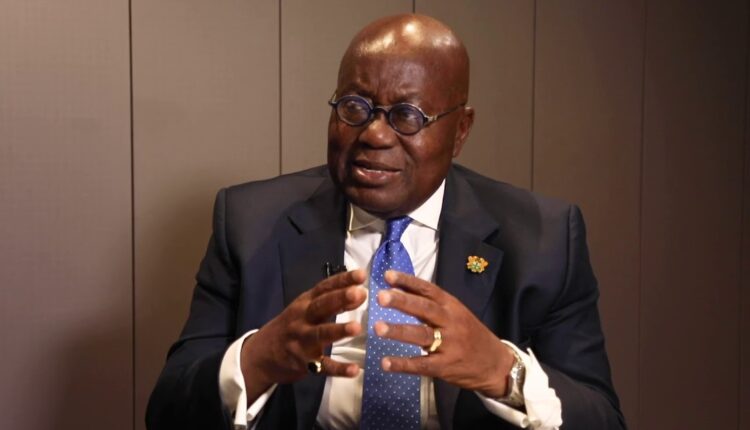We’re in difficult times, but we’re addressing the situation – Akufo-Addo assures
President Nana Akufo-Addo has acknowledged the current difficulties bedevilling the economy but assured that the government was working to fix the problems.
The COVID-19 pandemic, the ongoing Ukraine-Russia war and other domestic factors have not made things easier for the government as some critics cite bad governance.
In a State of the Nation Address (SoNA) delivered to Parliament on 30 March 2022, President Akufo-Addo said: “I know that there is a general sense of anxiety in our nation at the moment. The Ghanaian people are anxious about the economy, cost of living, income levels, jobs for young people and issues that we all thought that we had achieved national consensus on.”
President Akufo-Addo pointed out that: “The bombs might be dropping on cities half a world away, but they are hitting our pockets here in Ghana. Even so, we have managed to ensure that fuel supplies have not been disrupted, unlike in several other parts of the world”.
After a crunch meeting with Cabinet, Mr Akufo-Addo fashioned out some measures, including salary cuts by ministers and CEOs of state enterprises which were announced by Finance Minister Ken Ofori-Atta.
The government announced a 15 pesewas per litre reduction in fuel prices to address the rising cost of goods and services, which impacts the cost of living.
Additionally, there was 12 expenditure cutting measures to address economic hardships.
“The measures that have been announced by the Minister for Finance are meant to demonstrate that we are aware that we are in difficult times, and we are addressing the situation. The belt-tightening measures being set for members of the Executive have been elaborated within this context,” President Akufo-Addo said in his speech.
He cited unplanned expenditures to the tune of GH¢17.7 billion, representing 4.6% of GDP) to contain the spread of the COVID-19 pandemic since 2020.
“The road to recovery will be hard and long, Mr Speaker, but we have started on a good footing by accepting that we are in a difficult place and are taking the difficult decisions that will get us out,” he assured.
What is the current situation in Ghana?
According to the Ghana Statistical Service (GSS), consumer price inflation hit 15.7 per cent year-on-year in February from 13.9 per cent in January this year.
There is pressure on the government due to rising public debt estimated to be GH¢351.8 billion as of the end of 2021, an increase by GH¢60.2 billion from the same period in 2020, according to the Summary of Economic and Financial data released by the Bank of Ghana in March 2022.
Major agencies have downgraded Ghana’s credit ratings, with the Bank of Ghana (BoG) suggesting that there will be no Eurobonds in 2022.
Meanwhile, total revenue mobilised within the period stood at 15.4 per cent of revenue, with tax rating registering a paltry 12.6 per cent of GDP, far below the regional average.
The government is also faced with a free fall of the cedi against other major currencies, and the business sector is expecting measures to address the situation to curtail further increases in the cost of products and services due to huge imports.
According to Finance Minister Ken Ofori-Atta, the cedi has seen a 14% depreciation against the US dollar this year, making it one of the worse performing currencies globally.
In March 2021, the Finance Ministry indicated that the government had spent GH¢19 billion on the COVID-19 fight.
It also clarified that GH¢1.7 billion was spent on the COVID-19 Alleviation Programme (CAP1) and Emergency Preparedness and Response Plan.
Even though crude oil supply bottlenecks have caused a surge in prices on the international market, the depreciation of the Ghana cedi and taxes numerous taxes have pushed fuel prices at the pumps upwards.
There are about 12 taxes and levies on fuel which experts, the Ghana Trade Union Congress (TUC) and the Ghana Private Road Transport Union (GPRTU), have appealed for cancellation.
Transport fares increased by 15%, and barely a month later, fuel prices have shot up as high as GHC11 at some pumps, with fears of rising prices of goods and services as commercial operators clamour for a 20% fare increment.
At the beginning of 2022, petrol and diesel traded at an average GHS6.30 per litre at the pumps.
By March 2022, fuel prices crossed the GHS 8 per litre mark but are now being sold as high as GHS 11 at some pumps in the country, causing a surge beyond 18 per cent in the second pricing window of March.



